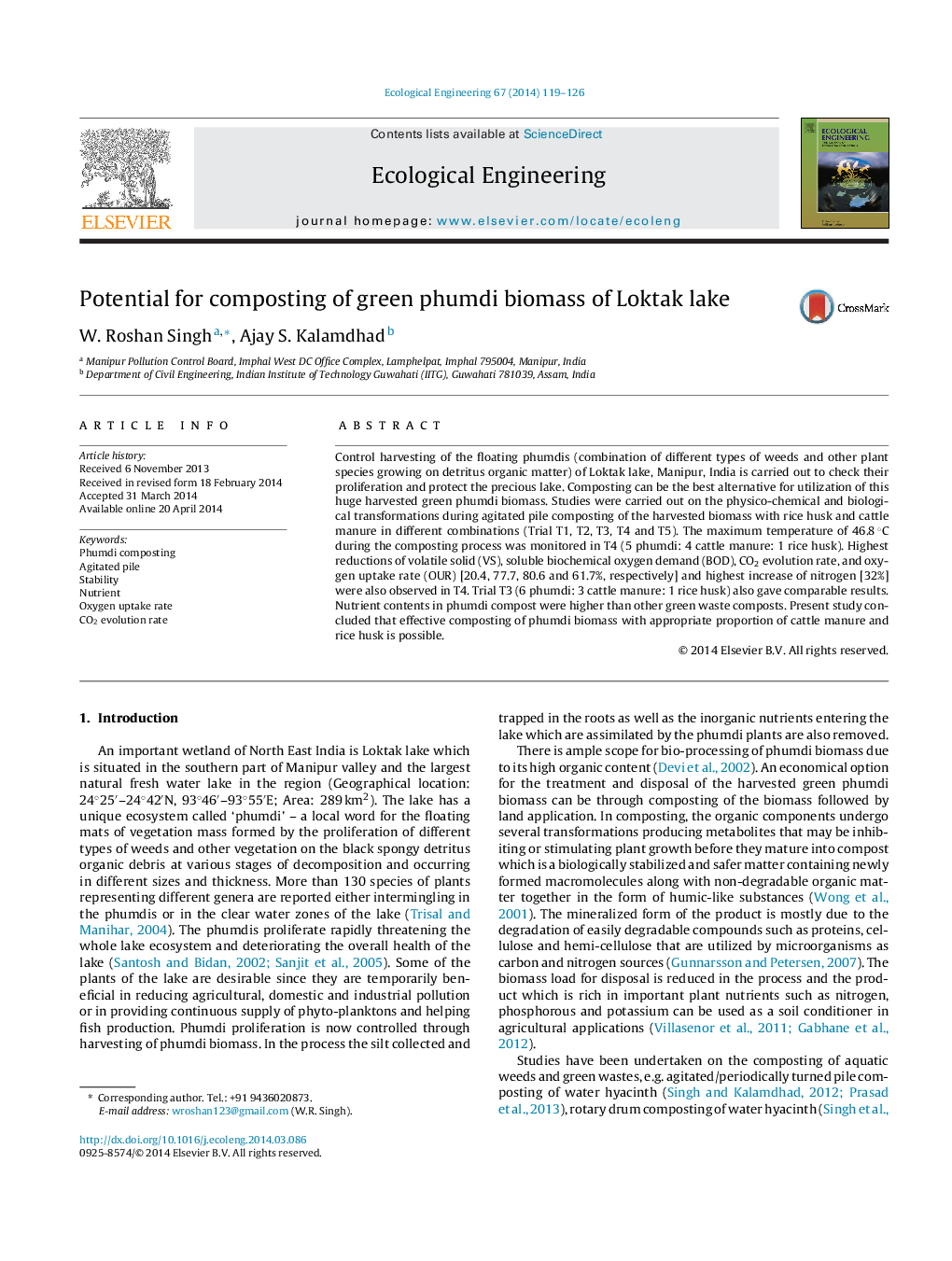| Article ID | Journal | Published Year | Pages | File Type |
|---|---|---|---|---|
| 4389421 | Ecological Engineering | 2014 | 8 Pages |
Abstract
Control harvesting of the floating phumdis (combination of different types of weeds and other plant species growing on detritus organic matter) of Loktak lake, Manipur, India is carried out to check their proliferation and protect the precious lake. Composting can be the best alternative for utilization of this huge harvested green phumdi biomass. Studies were carried out on the physico-chemical and biological transformations during agitated pile composting of the harvested biomass with rice husk and cattle manure in different combinations (Trial T1, T2, T3, T4 and T5). The maximum temperature of 46.8 °C during the composting process was monitored in T4 (5 phumdi: 4 cattle manure: 1 rice husk). Highest reductions of volatile solid (VS), soluble biochemical oxygen demand (BOD), CO2 evolution rate, and oxygen uptake rate (OUR) [20.4, 77.7, 80.6 and 61.7%, respectively] and highest increase of nitrogen [32%] were also observed in T4. Trial T3 (6 phumdi: 3 cattle manure: 1 rice husk) also gave comparable results. Nutrient contents in phumdi compost were higher than other green waste composts. Present study concluded that effective composting of phumdi biomass with appropriate proportion of cattle manure and rice husk is possible.
Related Topics
Life Sciences
Agricultural and Biological Sciences
Ecology, Evolution, Behavior and Systematics
Authors
W. Roshan Singh, Ajay S. Kalamdhad,
